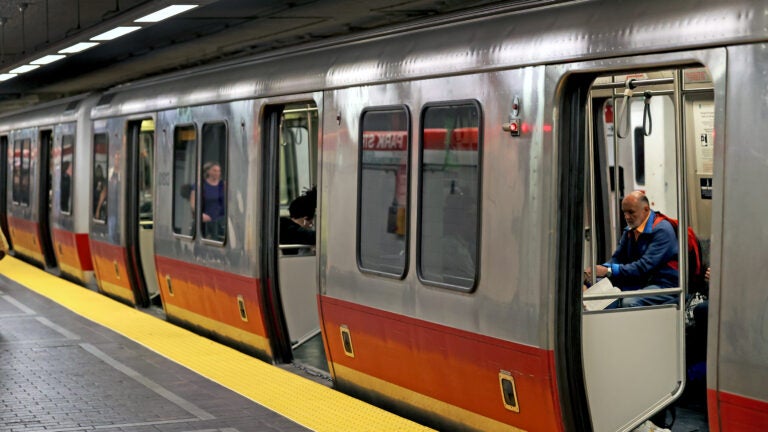Local News
A local leader from Arlington told the MBTA that bus service has deteriorated and that the MBTA should “dust off” its Red Line extension plans.
When the Town of Arlington said no to its own Red Line stop nearly 50 years ago, the MBTA scraped its plans for an extension from Harvard Square to Lexington and ended the line at Alewife in Cambridge.
Now, a local advocate has asked the MBTA to “dust off” its plans to extend the line to Arlington Heights.
Paul Schlichtman, the chair of the Arlington School Committee, told the MBTA Board of Directors Thursday during public comment that Arlington has seen “steady deterioration” in bus service for the Boston suburb.
Schlichtman, also a 28-year Town Meeting member, said for the first time this year, the town had to provide supplementary bus service to get students to school.
In 2023 and 2024, Arlington’s Town Meeting passed resolutions asking the MBTA to address transit concerns in the town. Voters asked the agency to improve bus service from Arlington Heights and to the Tufts/Medford Green Line stop.
The resolution passed in May also asked MBTA General Manager Phillip Eng and Massachusetts Department of Transportation Secretary Monica Tibbits-Nutt to host a community forum. The town never heard back, Schlichtman said.
“We’ve been patient. We’ve been understanding. However, this is wearing thin,” he said.
Arlington pays $3.4 million to the MBTA annually, according to Schlichtman, and only nine other municipalities pay more than the town. The MBTA Advisory Board, made up of leaders in the 176 cities and towns served by the transit agency, said the T will get $193 million in contributions from those towns this year. Boston contributed $97.3 million to that pot.
“Arlington’s level of service doesn’t correlate to our assessment,” Schlichtman said, pointing out that New Bedford does not contribute, despite the billion-dollar South Coast Rail extension and a recent $3.5 million eminent domain settlement to the city. “Arlington would also like a train.”
Arlington is densely populated, with nearly 50,000 people across five and a half square miles. Without improved bus service or a train, Schlichtman said, Arlington will suffer from “a horrible case of car constipation.”
Eng told Schlichtman that they would “sit down and discuss” why buses don’t travel frequently from Arlington to the Tufts/Medford stop, which is the terminus of the Green Line extension, following a bus network redesign.
“As we continue to hire and grow our bus operator capacity, let us take a look,” Eng said. “I don’t know the reason for those changes. I certainly welcome the opportunity to sit down and talk more in depth and see how we could tackle this together.”
Schlichtman said the T should revisit extending the Red Line to Arlington Heights, in part due to Arlington supporting zoning changes required by the MBTA Communities Act.
“We shouldn’t be ignored. We deserve a dialogue. We deserve to have a seat at the table. We deserve to have a conversation where we describe our transit needs, and we need the MBTA to be a partner in addressing our needs,” Schlichtman said.
‘We’re a very different town’: Arlington previously blocked Red Line extension
Thomas Glynn, the chair of the MBTA Board of Directors, pointed out to Schlichtman that it wasn’t the MBTA that blocked the Red Line extension in 1976 — it was voters in Arlington.
At the time, opponents, including St. Agnes Church, argued that the extension would cost residents $350 in property taxes a year, would increase congestion, and affect general “quality of life,” The Boston Globe reported at the time.
“(Then-MBTA General Manager) Bob Kiley is on the record saying the MBTA will listen to people, and the people don’t want the MBTA as planned to come in and cut up their town. It would be a major disruption,” St. Agnes’s priest John Linnehan told the Globe then.
The rejection became state law. Arlington officials passed a bill on Beacon Hill to prohibit any MBTA “mass transportation facility including but not limited to a rapid transit station or parking garage within seventy-five yards of Arlington Catholic High School,” which is in the center of town.
Schlichtman told the MBTA board that there’s a bill pending in the State House to repeal that law.
“It’s a different town,” Schlichtman said. “We’re very much aware of that. We’re a very different town.”
Boston.com Today
Sign up to receive the latest headlines in your inbox each morning.
